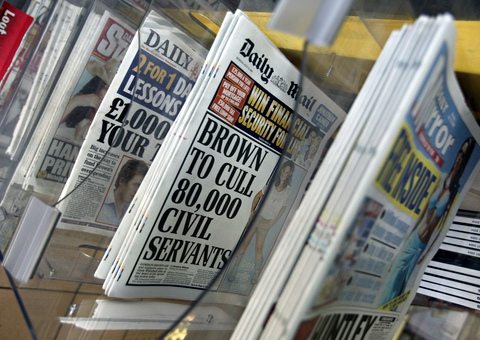A proposed bill in France that would make it illegal to disseminate photographs or videos identifying police and gendarmes “with intent to harm” is a danger to press freedom, critics have warned.
The measure comes amid growing concern about allegations of police violence in the country. It is outlined in draft global security legislation to be presented to the Assemblée Nationale next week.
Article 24 of the bill would introduce up to a year in prison and a maximum €45,000 (£41,000) fine for “disseminating by any means or medium whatsoever, with the aim or harming their physical or psychological integrity, the image of the face or any other identifying element of an officer of the national police or member of the national gendarmerie when engaged in a police operation”.
This clause states the officer must be identifiable and the intention of disseminating the video must deliberately and directly seek to harm them.
Intent to cause harm would be difficult to prove in the case of journalists covering demonstrations or police operations, and there is concern it could lead to searches at journalists’ homes and offices and examination of emails and social media accounts in the search for evidence.
Reporters Sans Frontières (RSF) said the article in the draft law was based on a “slippery concept” because intent was “open to interpretation and hard to determine”.
“A scathing social media post about police violence or criticism of the police in emails could be exploited in an attempt to demonstrate an intent to harm. It is impossible to know the degree to which such evidence might influence individual judges and convince them that there was a clear intent to harm,” RSF wrote in a statement.
RSF has requested clear guarantees that the proposed law would not enable police to arrest journalists while filming or prevent journalists and news media publishing or broadcasting images of police officers.
France’s independent “defender of rights”, Claire Hédon, said the legislation could pose “considerable risks” on information freedom and privacy.
Hédon said she was “particularly preoccupied by restrictions envisaged concerning the dissemination of images of security forces agents in the exercise of their duty”.
There have been a number of high-profile cases involving the police recently, including the death of delivery driver Cédric Chouviat, who said “I’m suffocating” seven times as police pinned him to the ground earlier this year.
French law and order forces were also criticised for their use of rubber bullets, water cannon and teargas against gilets jaunes (yellow vests) demonstrations. In September the journalist and film director David Dufresne released the documentary Un Pays qui se Tient Sage about police violence.
Recently, France’s law and order forces have been filmed using batons and teargas against protesting students and journalists.
The interior ministry says the law aims to protect police and gendarmes who have been increasingly targeted and threatened.
Three police officers were killed in the January 2015 attacks in Paris, and in 2016 a police commander and his partner were killed in their home at Magnanville, outside the French capital, in front of their toddler son. The assailant, who claimed allegiance to Islamic State, streamed a video of the knife attack on Facebook Live.
About 40 journalist organisations have signed a statement asking the interior minister, Gérald Darmanin, to remove the clauses in the proposed law likely to “undermine the freedom to inform”.
Emmanuel Vire, the secretary general of the French national union of journalists (SNJ-CGT), told Le Monde the law was “liberticide”. “We have the impression of being attacked from everywhere,” he said.











